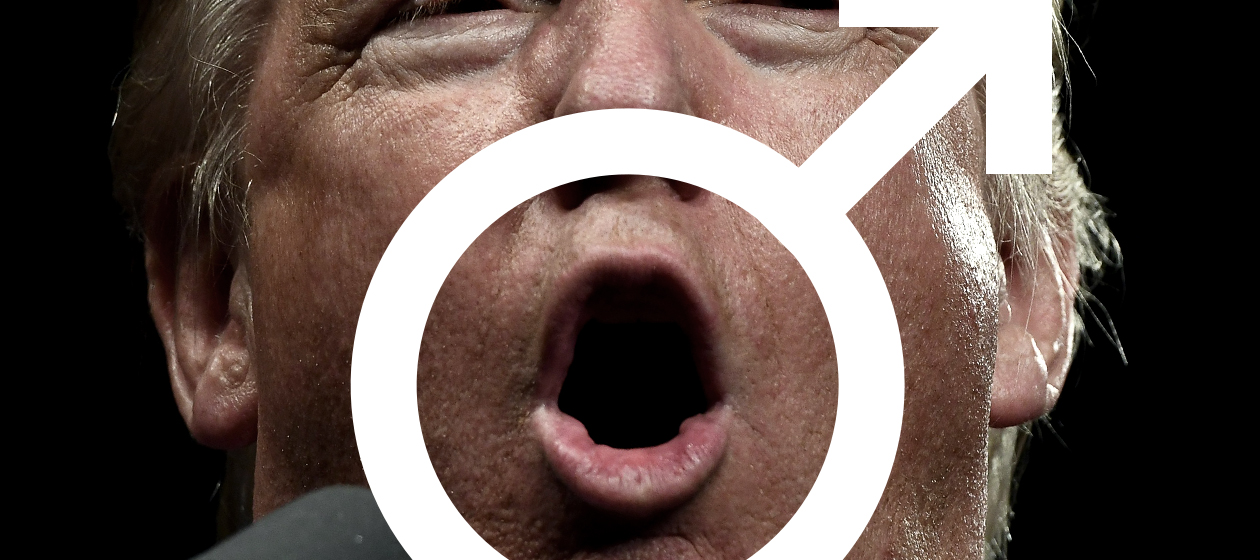The shameful roar of the new masculinists
This is the wrong way to react to #MeToo


A free daily email with the biggest news stories of the day – and the best features from TheWeek.com
You are now subscribed
Your newsletter sign-up was successful
It once seemed like the #MeToo movement might achieve something extraordinary in our age of social fracturing and political polarization, and unite people across the lines of party and identity for genuine social reform.
That hope is long gone now.
You can see it in the furor over embattled Supreme Court nominee Brett Kavanaugh, who has been accused of sexual assault against a fellow teenager when they were both in high school, and also by a woman who says Kavanaugh exposed himself to her at a party in the 1980s when they were both students at Yale University. What happened between Kavanaugh and his accusers is disputed, and may never be truly known. What is in less doubt, however, is that due in large part to outrageously cynical partisanship Kavanaugh has now supplanted undisputed serial offenders like Harvey Weinstein and Matt Lauer as the archetypical target of the #MeToo movement — with irreversible implications not just for #MeToo but for our political and sexual culture.
The Week
Escape your echo chamber. Get the facts behind the news, plus analysis from multiple perspectives.

Sign up for The Week's Free Newsletters
From our morning news briefing to a weekly Good News Newsletter, get the best of The Week delivered directly to your inbox.
From our morning news briefing to a weekly Good News Newsletter, get the best of The Week delivered directly to your inbox.
The #MeToo movement is now conclusively coded in the public imagination as a weapon of the political left; as a result, opposing the reshuffling of the social-sexual equilibrium between men and women is now seen by conservatives as strategically essential; and, perhaps most ominously, this opposition has coalesced around an explicit assertion of men's interests and identity against those of women.
Grumbling about a new Puritanism that threatens men's status and well-being has advanced from alt-right message boards to mainstream conservative publications, and now it is de rigeur in response to the Kavanaugh allegations. A representative sentiment was expressed by a Trump administration official explaining why the president would not back down from the nomination: "If somebody can be brought down by accusations like this, then you, me, every man certainly should be worried. We can all be accused of something."
This is the language of masculine solidarity and an emerging men's identity politics. It reveals both a genuine anxiety — a sense of unsettledness, of not knowing where one stands one moment to the next — and a rhetorical strategy — positioning the president as the defender of men's dignity. This strategy is based on two assumptions: that #MeToo anxiety is widely shared by men and, more potently, that men who do not share this anxiety will still feel solidarity with those who do because of their shared identity not just as men, but as victims of what is perceived to be an anti-male culture. It is the photo negative of feminism.
The promise of the #MeToo movement was a new equilibrium between men and women. There was hope that the revelation of widespread abuse and harassment, previously endured privately and silently, would allow the social-sexual "marketplace" to rebalance as men gave up certain privileges they barely realized they had in order to account for this new reality.
A free daily email with the biggest news stories of the day – and the best features from TheWeek.com
Of course, real life doesn't work like an efficient marketplace. #MeToo emerged into a society already roiling with masculine insecurity — some a symptom of interminable adolescence married to patriarchal entitlement, but some also a desperate and understandable reaction to collapses in economic opportunity. The promise of a peaceful transfer of power and privileges was never going to be fulfilled in this climate of apprehension and suspicion.
This does not reflect well on the men of our age. The best aspects of traditional masculine identity are virtues like self-sacrifice, fortitude, and magnanimity, not sexual conquest, interpersonal dominance, and despair at the loss of social privileges. The most authentically masculine response to the #MeToo movement — indeed, the most authentically human response — would be to listen, to empathize, to repent, and to begin the hard work of reforming institutions and building up strict stigmas against abuse by our fellow men.
But the masculine identity being reasserted against #MeToo isn't one of generosity but of fear — fear of a loss of power against which only power can be wielded. It is shorn of whatever vestigial connection it had to traditional religious understandings of virtue and the special regard owed to the weak and vulnerable. And it is now firmly established in the scaffolding of the modern and explicitly revanchist American right.
The Kavanaugh hearings are sealing the pact between the new masculinists and mainstream conservatism. It didn't have to be this way. But in a political climate where every battle takes on eschatological importance, restraint is regarded as malpractice. If everything is on the line, then anything is worth sacrificing — even the fundamental social bond between men and women.
Brandon McGinley writes from Pittsburgh, where he works for the Pennsylvania Family Institute and lives with his wife and daughter. His writing has appeared in print in National Review, Fare Forward, and the Pittsburgh Post-Gazette, and online at First Things, Public Discourse, and The Federalist. He has edited a book on Catholic fatherhood, The Joys and Challenges of Family Life, to be published by Our Sunday Visitor in spring 2015.
-
 What to know before filing your own taxes for the first time
What to know before filing your own taxes for the first timethe explainer Tackle this financial milestone with confidence
-
 The biggest box office flops of the 21st century
The biggest box office flops of the 21st centuryin depth Unnecessary remakes and turgid, expensive CGI-fests highlight this list of these most notorious box-office losers
-
 What are the best investments for beginners?
What are the best investments for beginners?The Explainer Stocks and ETFs and bonds, oh my
-
 The billionaires’ wealth tax: a catastrophe for California?
The billionaires’ wealth tax: a catastrophe for California?Talking Point Peter Thiel and Larry Page preparing to change state residency
-
 Bari Weiss’ ‘60 Minutes’ scandal is about more than one report
Bari Weiss’ ‘60 Minutes’ scandal is about more than one reportIN THE SPOTLIGHT By blocking an approved segment on a controversial prison holding US deportees in El Salvador, the editor-in-chief of CBS News has become the main story
-
 Has Zohran Mamdani shown the Democrats how to win again?
Has Zohran Mamdani shown the Democrats how to win again?Today’s Big Question New York City mayoral election touted as victory for left-wing populists but moderate centrist wins elsewhere present more complex path for Democratic Party
-
 Millions turn out for anti-Trump ‘No Kings’ rallies
Millions turn out for anti-Trump ‘No Kings’ ralliesSpeed Read An estimated 7 million people participated, 2 million more than at the first ‘No Kings’ protest in June
-
 Ghislaine Maxwell: angling for a Trump pardon
Ghislaine Maxwell: angling for a Trump pardonTalking Point Convicted sex trafficker's testimony could shed new light on president's links to Jeffrey Epstein
-
 The last words and final moments of 40 presidents
The last words and final moments of 40 presidentsThe Explainer Some are eloquent quotes worthy of the holders of the highest office in the nation, and others... aren't
-
 The JFK files: the truth at last?
The JFK files: the truth at last?In The Spotlight More than 64,000 previously classified documents relating the 1963 assassination of John F. Kennedy have been released by the Trump administration
-
 'Seriously, not literally': how should the world take Donald Trump?
'Seriously, not literally': how should the world take Donald Trump?Today's big question White House rhetoric and reality look likely to become increasingly blurred
